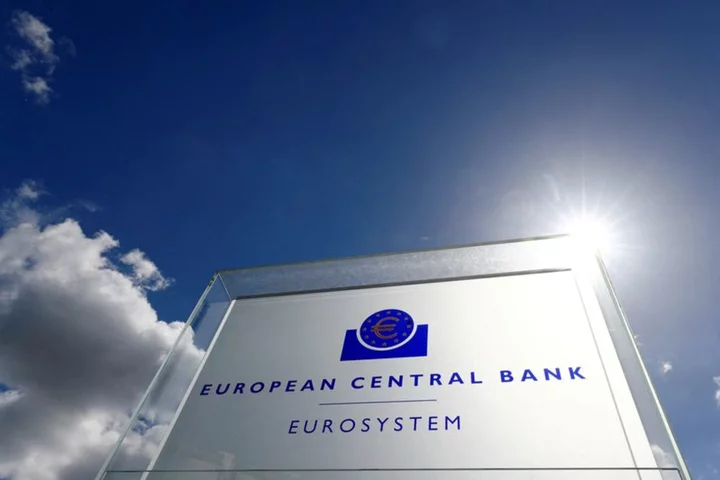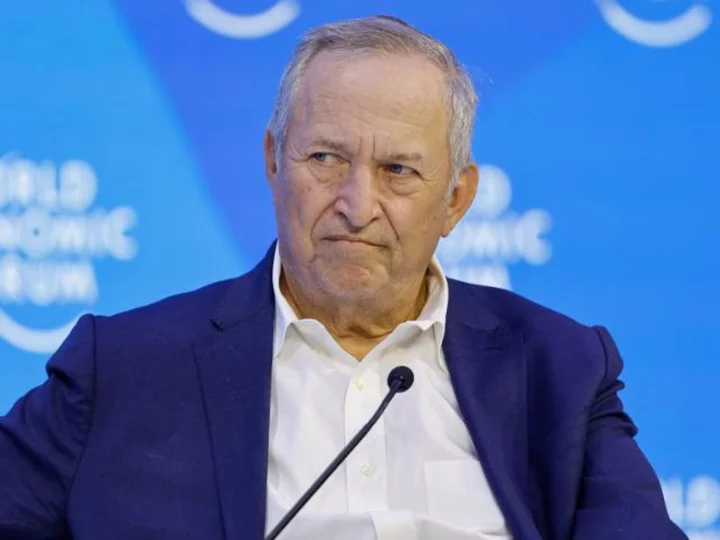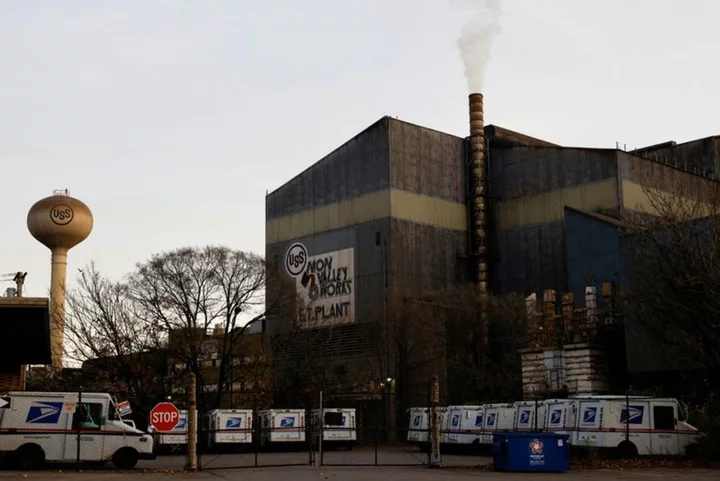By Leigh Thomas and Mathieu Rosemain
AIX-EN-PROVENCE, France An unusually long lag in the time interest rate hikes are taking to feed through to the economy has left corporate leaders guessing whether to prepare for a hard or soft landing.
Although central banks in the United States and Europe have raised interest rates at the fastest pace in decades in an effort to tame inflation, most economies have so far escaped the painful recessions triggered by previous tightening cycles.
For corporate leaders at a weekend economics conference in the southern French town of Aix-en-Provence, that delay has left them questioning when and how much higher borrowing costs will affect them, especially if central banks keep hiking.
"There's no real consensus at the moment about the increase in interest rates among economic actors," Jeremie Delecourt, chief operating officer at French private equity fund Ardian, told Reuters.
"The fact everyone is asking the question is interesting, there are those who are optimistic and others who are pessimistic," he added.
In the euro zone, the peak is near after a combined 4 percentage points rise in the past year, ECB policymaker and French central bank governor Francois Villeroy de Galhau said on a panel at the conference.
But he also said that rates would be left high for as long as necessary to ensure that inflation is headed back to the European Central Bank's 2% target by 2025.
The ECB raised interest rates to their highest level in 22 years last month and promised another hike this month, with possibly another in September.
Jean-Louis Girodolle, head Lazard in France, told a panel that there was a danger central banks would fight inflation with the same zeal they fought deflation and go too far.
"The scenario that I fear is that we get the landing wrong, the opposite of 'whatever it takes', the of investment bank head said, referring to former ECB president Mario Draghi's 2012 pledge to steer the euro zone through its debt crisis.
'GOING TO BITE'
The full impact of rate hikes is taking more time than usual because many households and companies entered the new era of higher borrowing costs with solid cash levels, the result of strong savings during the pandemic.
Additionally, labour markets are strong on both sides of the Atlantic and corporate profits have so far held up, while housing markets are generally cooling but not in a tailspin.
"The transmission (of monetary policy) is coming late, but it's going to bite, I would say towards the end of this year," said Aylin Somersan Coqui, head of German export credit insurer Allianz Trade.
The pinch from higher borrowing costs would come just as corporate profits and the broader economy starts to falter, while elections in many countries next year would make it hard for governments to help struggling firms, she added.
"I see quite a bit of optimism in the short term, but I see a lot of downside risks if there is a policy mistake, especially from the central banks," she added.
Though corporate defaults are on the rise in many countries they remain below pre-pandemic levels as many firms' debt is in cheap, fixed-rate loans taken out when rates were ultra low.
While refinancing at much higher levels in the coming months could be a challenge for the weakest balance sheets, the increase in borrowing costs would come gradually for most firms, said Daniel Barneix, head of AFTE association for French corporate treasurers.
"We can expect debt levels to be adjusted on a case by case basis without triggering a systemic crisis," said Barneix, who is also deputy finance director at French building materials group Saint-Gobain.
Although inflation is receding in most countries after last year's supply-chain and energy price shocks, interest rate hawks say that its better to err on the side of going too high rather than not tackling high inflation.
"You should really avoid being dovish because then there is a big risk that inflation will come back and it will be really hard and long-lasting," Veronika Grimm, one of the German government's chief economic experts, told Reuters.
(Reporting by Leigh Thomas; Editing by Alexander Smith)









